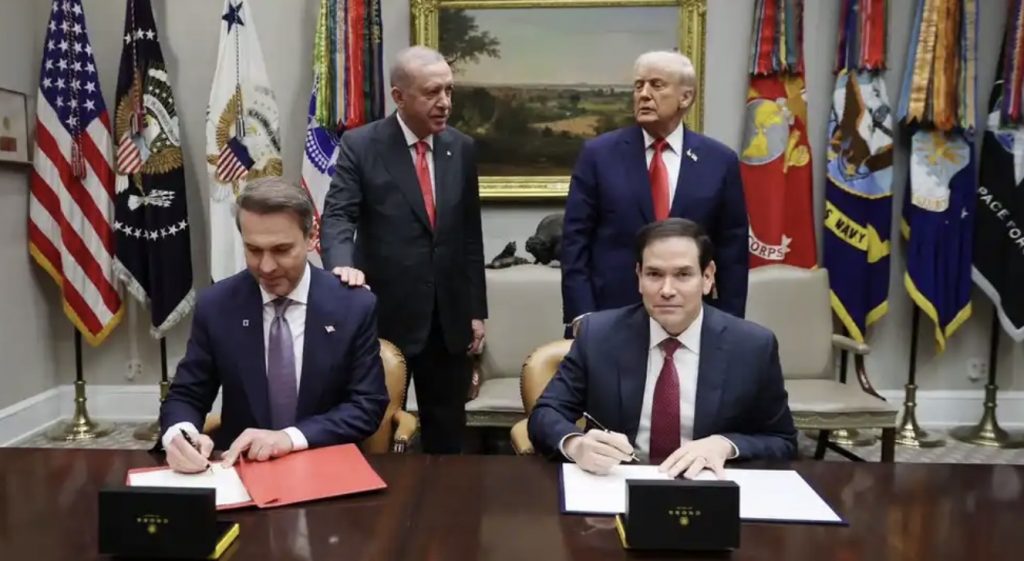Türkiye–U.S. Civil Nuclear Deal: What Was Signed, Why It Matters, What Comes Next
WASHINGTON / ANKARA
— Türkiye and the United States have signed a Memorandum of Understanding (MoU) on Strategic Civil Nuclear Cooperation at the White House, opening a formal channel for investment, technology cooperation, and workforce training in peaceful nuclear energy. This is not a reactor purchase contract; it’s a framework that lets both governments and companies begin structured work on potential projects—ranging from large reactors to small modular reactors (SMRs)—under strict safety and non-proliferation rules.
What exactly happened
Energy Minister Alparslan Bayraktar and U.S. officials signed the MoU during President Erdoğan’s late-September visit to Washington. Public statements frame it as a “strategic” collaboration to diversify Türkiye’s energy mix and reduce reliance on single suppliers.
- Reporting from multiple outlets (industry and general press) confirms the signing took place at or around the White House on Sept. 25–26, 2025. The MoU points to cooperation on technology, fuel security, regulatory alignment, training, and potential projects, including SMRs.
Why this matters (in plain terms)
Energy security with partners: Türkiye already hosts the Russian-built Akkuyu plant; adding a U.S. track broadens options for future plants and fuel services. That reduces single-supplier risk and increases bargaining power on cost, timing, and technology.

Cleaner baseload power: Nuclear provides steady, low-carbon electricity. If projects move forward, it helps balance renewables and cut gas imports over time.
Economic opportunity: An MoU unlocks feasibility studies, site work, vendor lists, training programs, and—if projects pencil out—multi-year contracts for engineering, fabrication, and services in both countries. Daily Sabah’s coverage also highlights U.S. job creation and export opportunities. Daily Sabah
Geopolitical signal: A functioning U.S.–Türkiye nuclear channel sits alongside the long-term U.S. LNG supply deal, pointing to a broader energy partnership rather than one-off announcements.
What it is not
Not a reactor order. No vendor, site, or financing has been locked. It’s the green light to start serious scopingwith U.S. partners. Any plant would still need environmental reviews, a regulator-approved design, financing, and public procurement steps
Why Turkish-Americans should care
Business pipeline: U.S. companies—many small and mid-size—could supply engineering, safety systems, valves, pumps, digital controls, construction services, training, and QA. That’s real work for Turkish-American firms and professionals.
Talent & training: Expect scholarships, exchange programs, and certification pathways as universities and labs on both sides build a nuclear workforce.
A steadier relationship: Practical projects reduce political whiplash: when there’s shared steel-in-the-ground and long contracts, the partnership becomes more predictable.
The U.S.–Türkiye civil nuclear MoU is a door-opener. If the two sides move from paperwork to project studies—then to bankable contracts—Türkiye gains cleaner, reliable power and more leverage in energy policy; U.S. partners gain a major market and long-run work; and the bilateral relationship gets a durable economic anchor.
